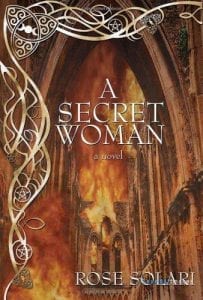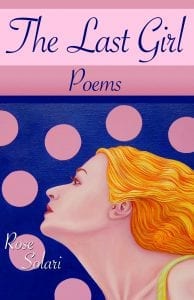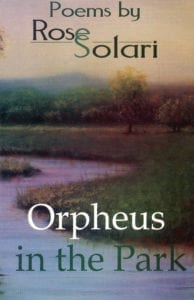Off the Cuff: Rose Solari's Keys to Writing Success
Rose sits down with Brain Hackers Magazine founder and CEO, Dave Farrow, to talk about succeeding as a poet.
"[A] thing that is crucial [for up and coming writers] is reading a lot. A professor of mine in college gave me the 100:1 ratio. He said, “You have to read about 100 good poems to write one.” It sounds daunting but it actually makes a kind of sense. I was trained in poetry, I have an MFA in poetry, so when I sat down to write a novel for the first time I knew I had an idea which was too narrative to fit into a poem and that it had to be a novel. One of the things I did was re-read novels I admired in a different way, specifically for structure. This is a really important thing that a beginning writer [should] do. No matter what you’re writing—non-fiction, fiction, poetry—take a couple of books you admire and look at how they’re put together, look at how the chapters are constructed, look at the arc [made] from one section to the next. If you’re doing, as my book had, an historical component, look at how writers who write historical fiction weave their research into the work without making it look clunky. One of my favorite novels is A.S. Byatt’s Possession which [narratively] travels through time periods and [when I was writing A Secret Woman] I literally took her book apart; I took my paper back and pulled it apart and laid out the sections and looked at how she developed the arc of the book. It was as useful as any writing class I’ve ever taken."
-Rose Solari
More From Rose Solari
Featured Audio: Rose Solari reads “The Beginning, 1939”
In “The Beginning, 1939” Rose Solari’s mastery of recitation is put to the music of her capricious mother and the frantic hopes of her father who wishes to leave “no long, tight pauses for her to fill.” I’ve written before about Rose’s use of swing and rhythmic motifs in her work, elements which are alive in this poem, but what is really mesmerizing to me about “1939” is the musical image toward the end which harbors no pretense of cramming lieder into language, but instead focuses on the very physical act of her mother playing the piano:
Featured Audio: “Letter from Sligo Creek” a poem by Rose Solari
Like the cover photo, the poems in Difficult Weather are timeless and—unlike the poems in many first books—extraordinarily mature. Although the narrative voice is generally that of a young woman in her late twenties and early thirties whose subject matter sometimes ranges back to early childhood, these are poems of adulthood: the discovery and endlessly painful rediscovery of human frailty, sexual and emotional betrayal, bad love in all its familial and romantic varieties, memory, and elegy…
Featured Audio: “Margaret in Oxford,” a Reading by Rose Solari
Robert Olen Butler loved Rose’s debut work of fiction for its sense of the eternity. This is one of many reasons why all of Rose Solari’s work must be treasured. It plays on life motifs, flips, forms, and languors upon the archetypes formed of human experience. We have spoken previously of Rose’s reverence for the myth in modern day. We even looked before at A Secret Woman’s sense of itself as being both poem and novel…



